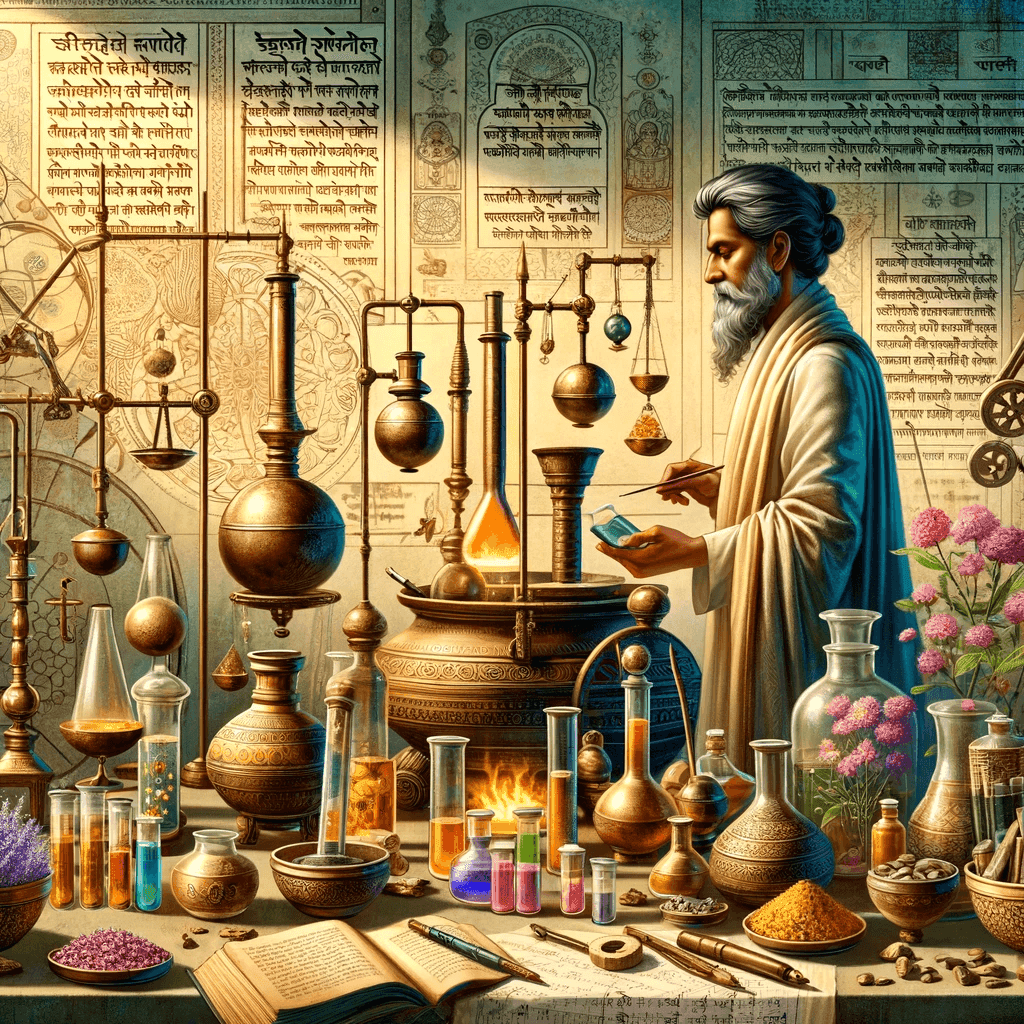Rasa Shastra: Ancient Alchemy and Chemistry in Indian Medicine
Rasa Shastra, an ancient branch of Indian alchemy and chemistry, is primarily concerned with the preparation and use of medicinal substances. Originating in the Vedic period, it forms a significant part of Ayurvedic medicine, emphasizing the transformation of materials into potent medicines through various alchemical processes.
Information and Other Details

Information on the Discovery
The discovery of Rasa Shastra as a scientific discipline is attributed to the ancient Indian texts, particularly the Ayurvedic Samhitas and the later works of alchemists and physicians like Nagarjuna. These texts reveal a profound knowledge of metallurgy, chemistry, and pharmacology.
Story
The story of Rasa Shastra is a blend of practical and spiritual pursuits. It evolved from the search for immortality and physical perfection, leading to experiments with minerals, metals, and other substances to create elixirs and remedies. Over time, these practices became more refined and focused on the medicinal aspects.
History of the Discovery
Rasa Shastra's history dates back to the early centuries of the Common Era, although its roots may be traced to the Vedic period. The works of scholars like Nagarjuna, who is credited with pioneering techniques in chemical synthesis and metal processing, mark significant milestones in its development.
Scriptural References and Its Mentions
Key texts in Rasa Shastra include the "Rasaratnakara," "Rasendra Chudamani," and "Rasa Hridaya Tantra." These texts, along with the "Rasashastra" section in Ayurvedic Samhitas like "Charaka Samhita" and "Sushruta Samhita," provide extensive details on the preparation and properties of various medicinal substances. They cover a wide range of topics from the purification of metals and minerals to the preparation of complex formulations.
Global Influence/Acceptance
Rasa Shastra's influence, primarily confined to the Indian subcontinent, significantly impacted traditional Indian medicine. Its principles and practices have been studied and appreciated by scholars interested in the history of chemistry and medicine. However, due to its heavy reliance on metals and minerals, Rasa Shastra has faced scrutiny and caution in the global context, especially concerning safety and toxicity.
...




